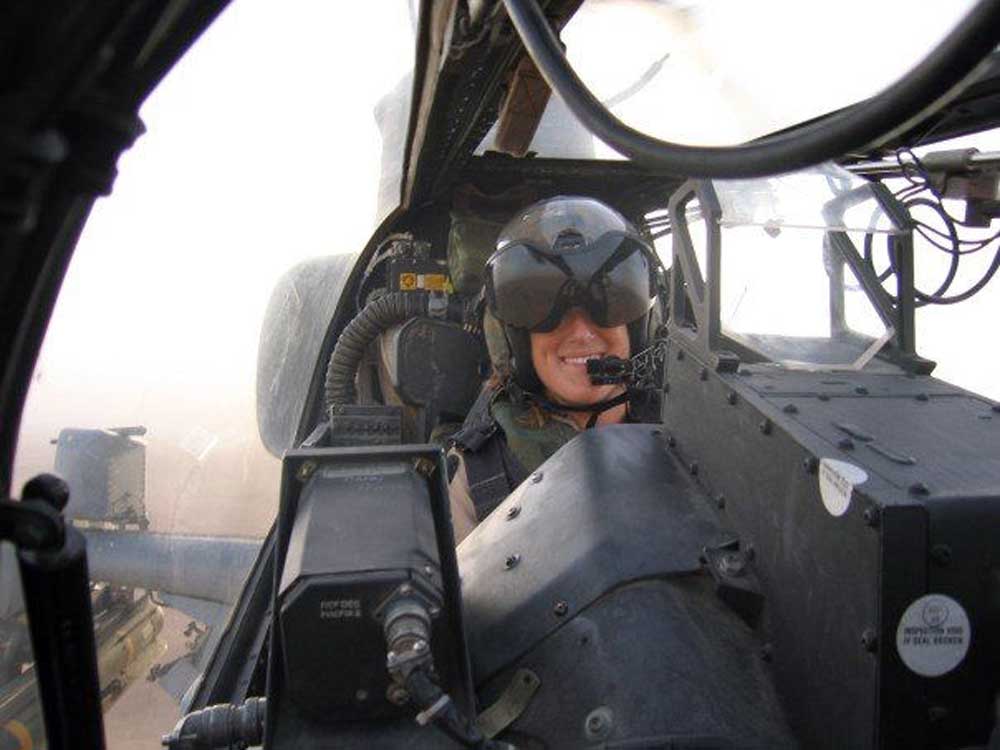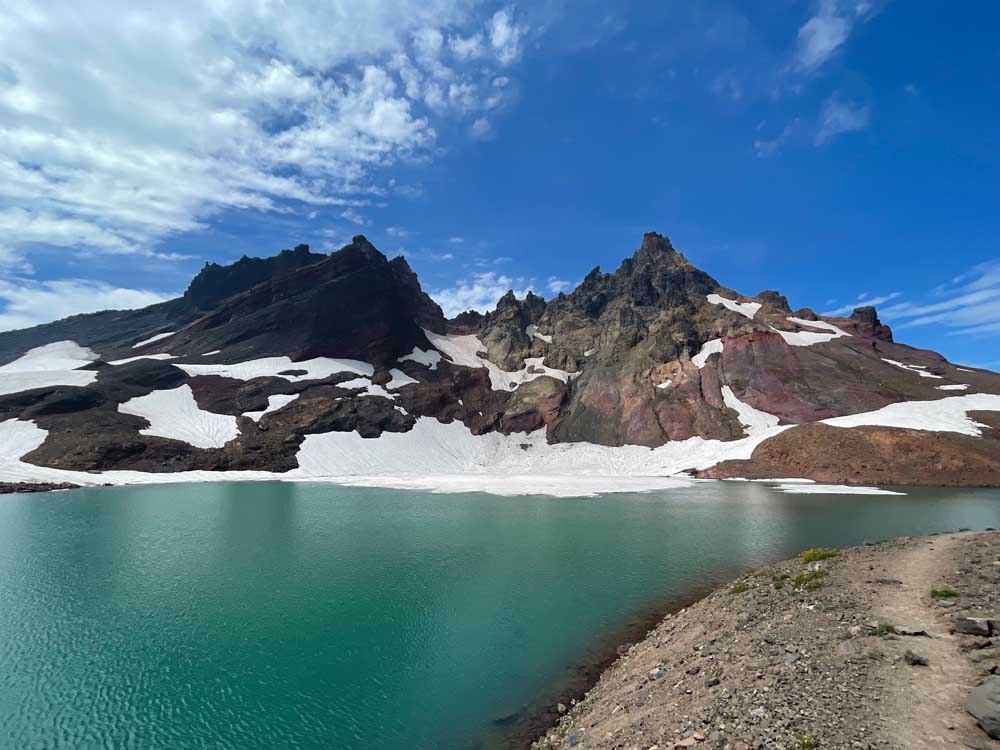Bend women vets would have signed up for ground combat
Published 12:00 am Thursday, January 14, 2016

- Kyleanne Hunter / Submitted photoKyleanne Hunter, a Marine officer and super cobra pilot, flying over Afghanistan in 2009. Hunter is happy the decision was made to open up combat roles to women in the military.
If they had the opportunity, two Bend women veterans would have loved to serve in ground combat.
In a historic decision last month, Defense Secretary Ashton Carter ordered that all military jobs be open to women, including positions in combat.
Trending
Veterans Dani Shine and Kyleanne Hunter both support the order, although they had different experiences in the service. Shine worked in an Army transportation unit in the Gulf War, while Hunter was an officer in the Marines, serving as an AH-1W SuperCobra (attack helicopter) pilot in combat missions in Iraq and Afghanistan.
Unlike Shine, who enlisted almost fresh out of high school to pay for college, Hunter entered officer training when she was 25, looking for “adventure.” She said when she made the decision to begin officer training, she was naive to the military.
“I was completely military ignorant before I went in,” Hunter, 37, said. “I thought, ‘Oh, it’s going to be hard and it’s going to be an adventure.’”
What she found, she said, weren’t as much physical barriers as institutional ones.
“There’s an ingrained culture of hypermasculinity,” Hunter said of the Marines. “It’s created this culture of, ‘We’re iconic warriors that everybody wants.’ It’s made the force steeped in tradition — and not always for the best.”
Hunter said that in training, she was encouraged by other women, and men, not to exceed the standard Marines set for women, which was frustrating since she could meet the more difficult standards upheld for men. Hunter thinks overcompetitiveness, jealousy and defensiveness played a role in this.
Trending
In 2003, Hunter would be the first woman in her squadron to become a Cobra pilot, and one of the first few women to do so across the Marines. The positions had opened up to women in the mid-1990s, but few had taken them on.
A Cobra, Hunter explained, is an attack aircraft only. It doesn’t serve other uses like to carry supplies, so when Hunter took on the position, she knew she would be learning to fly and shoot with a co-pilot in combat.
Combat positions like that, in the air, opened up to women long before the rest of the jobs in the military would become available to women . Hunter served in the wars in Iraq and Afghanistan.
Hunter is supportive of the Department of Defense’s order Dec. 3. Had ground combat positions been open during her service, she says would have surely done it. As someone who surpassed women’s Marines standards to meet men’s (as she described in The New York Times At War blog), Hunter believes men and women should be held to the same standards.
She explained women often simply lacked the training to reach goals like a six-minute mile. Some women couldn’t meet that standard, but they also hadn’t been trained to meet it.
Beyond institutional issues within the Marines and the military in general, Hunter, a Ph.D. candidate in political science at the University of Denver’s Josef Korbel School of International Studies, sees how culture in general has shaped women, from the time they are young, to steer clear of math and science (subjects a Cobra pilot needs to understand).
For her part, Shine is also happy about the Department of Defense order.
“Over there, a soldier is a soldier,” Shine, 47, said of her time serving in the Persian Gulf. Shine never served in combat; she worked in transportation at the Port of Dammam, where her job was to get food supplies, ammo, tanks and any equipment from the U.S. disbursed.
“They treated us the same,” Shine said, comparing women to men. “You still had to carry the same rucksack.”
Bathrooms and showers weren’t divided by gender either, only tents to sleep in.
“I think it’s great, if the women want to do it, and they go in knowing this is what they’re expected to do,” Shine said, adding she excelled in her training as a sharpshooter. “I could shoot a lot of guys under the table, that’s for sure.”
Shine also said as an 18-year-old enlistee, she likely would have been gung-ho about serving in combat.
“At the time, I probably would have been like, ‘Sweet, let’s do it,’” Shine said. “But knowing what I do now, no.”
Last year, more than 20 years after her service had ended, Shine was diagnosed with post-traumatic stress disorder.
Shine said a variety of experiences back in the Gulf likely led to the disorder, although one particular trip was especially haunting. During a convoy through the notorious Highway of Death, Shine was confronted with the sights and smells of the carnage of bombings.
“I just didn’t ever deal with it,” she said. Since her diagnosis, Shine started a special form of therapy and in the meantime had to quit her job in the medical diagnostics unit at St. Charles, where the smell of burning flesh during cauterizing acted as a trigger. She’s now doing nurse managing at the VA Primary Care Clinic in Bend.
She also started a group, Women of Combat, to create a community for female veterans in Central Oregon, where she met Hunter. So far, only the two of them have shown up to meetings. Shine said the goal is for the group to bond over monthly activities, from biking to snowshoeing, in a no-pressure environment.
“It’s more about just interactions,” Shine said. “You can talk about it if you want to, but you don’t have to.”
Shine said with PTSD, “the nature of the beast is isolation.” She attended men’s veterans groups, but those didn’t meet her needs. The trouble now, she said, is in finding women who are veterans.
“What’s really hard to do is find these women, but I know they’re out there,” Shine said. “Why aren’t they coming? That’s the hardest part.”
— Reporter: 541-383-0325, kfisicaro@bendbulletin.com








